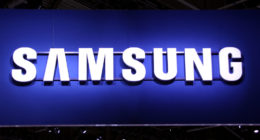It is more than confirmed now. If you had a chance to read it, GSMArena, in the various tests that it performed on the iPhone 7, had reported that the 32 GB variant has much slower writing speed when compared to the 256GB model. The same has now been confirmed by Unbox Therapy’s Lew Hilsenteger’s latest video.
In the video, Hilsenteger has performed a test via PerformanceTest Mobile [Direct Link], an app which lets you test various devices on multiple performance fronts. Lew performed the tests on a 32Gb iPhone 7 model and a 256 GB variant of the same. And while both the devices had similar read speeds — 656MB per second for the 32GB model and 856MB per second for the 128GB model — there were huge differences when it comes to write speeds.
While the 128GB model writes at 341MB per second, the 32GB model writes at 42MB per second, nearly 8 times slower than the higher capacity model.
To give you a background on how these write speeds on SSDs work, a thread on Howtogeek states,
Larger SSDs are faster because they use more Channels in parallelwhile smaller ones only use a few channels.
The higher capacity variants of an SSD model often get their higher capacity from simply having more NAND flash chips of the same type as the lower capacity variants. Having more NAND flash chips allows for a design where the controller on the SSD can access more data in parallel, allowing for higher speeds.
Unbox Therapy’s Hilsenteger also performed a real world test to prove his point. And boy it did. While a 4.2 GB file took a precise 2 minutes and 34 seconds to get transferred from a mac to a 256GB iPhone 7 model, it took the same time, a much larger 3 minutes and 40 seconds to get transferred.
The discrepancy is significant, specially when Apple sells its iPhones to consumers, on the pretext that there is absolutely no performance difference in different models. The test however, should;t be entirely surprising for you, considering that there have been lot of previous test and reports about former iPhone models as well, lagging behind on performance fronts, as against Apple’s tall claims.





